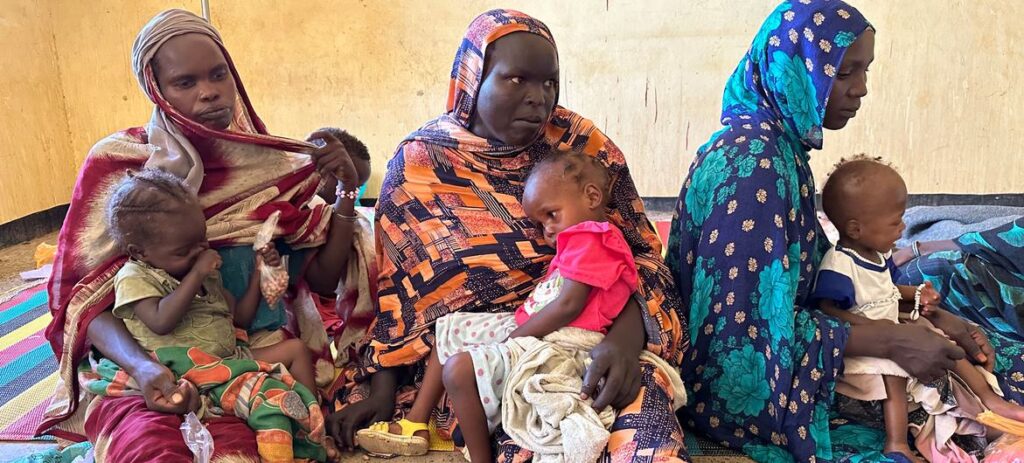The warning comes from the UN children’s organization UNICEF saying that levels of serious wasting among children under five remain seriously high in several countries due to conflict, economic shocks and climate crises.
Fatal condition
Severe wasting – also known as severe acute malnutrition – is caused by a lack of nutritious and safe food and repeated bouts of diseases such as diarrhea, measles and malaria.
Children grow dangerously thin and their weak immune systems make them vulnerable to growth failure, poor development and death.
RUTF is an energy-rich micronutrient paste made from milk powder, peanuts, butter, vegetable oil, sugar and a mix of vitamins and minerals.
It has helped save millions of children from the brink of death due to severe malnutrition.
“Over the past two years, an unprecedented global response has enabled the scale-up of nutrition programs to curb child wasting and associated mortality in countries hit hard by conflict, climate and economic shocks and the resulting maternal nutrition crisis and children,” said Victor Aguayo, UNICEF Director of Child Nutrition and Development Victor Aguayo.
“But Urgent action is needed now to save the lives of nearly two million children fighting this silent killer.”

© UNICEF/Giacomo Pirozzi
A four-month-old boy is spoon-fed by a hospital worker in the province of Punjab, Pakistan (file).
Supplies are running low
UNICEF says children in the 12 worst-affected countries are already at risk of not receiving treatment due to a shortage of RUTF.
Mali, Nigeria, Niger and Chad are already or will soon face shortages, while Cameroon, Pakistan, Sudan, Madagascar, South Sudan, Kenya, the Democratic Republic of Congo and Uganda could run out of supplies by mid-2025.
The situation in the African Sahel region is exacerbated by prolonged droughts, floods and irregular rainfall. This leads to food shortages and high food prices and subsequently to higher levels of severe waste.
For example, more than 300,000 children under the age of five in Mali are expected to experience severe wasting this year, but in late July nutrition programs began running out of RUTF supplies.
Meanwhile, in Chad, the government declared a food and nutrition emergency in February, and more than 500,000 children under the age of five are expected to suffer from severe wasting this year. Provinces with a large refugee population are particularly affected.
About 315,000 children were treated in the country between January and August. While needs remain urgent, RUTF supplies could run out by the end of this month.
‘No time to lose’
UNICEF is seeking $165 million to fund therapeutic nutrition, treatment and care for the two million children at risk of death. update to his No time to lose plan.
The initiative was launched in 2022 in response to the global food and nutrition crisis. Since then, UNICEF has raised more than $900 million to scale up programs, services and facilities for the early prevention, detection and treatment of child abuse.
As a result 21.5 million children and women received essential serviceswhile Early detection services reached 46 million children And 5.6 million people gained access to life-saving treatment.
No time to waste 2024 outlines the pressing funding gaps that are putting young lives at risk. The call also emphasizes the need for continuity of local production of essential food supplies, which is essential to sustain interventions and improve community resilience to malnutrition.
Child Nutrition Fund
To tackle severe malnutrition in children in the long term, UNICEF launched the initiative Child Nutrition Fund (CNF) last year, with the support of the United Kingdom Foreign Commonwealth and Development Office, the Bill and Melinda Gates Foundation and the Children’s Investment Fund Foundation.
The CNF goals include supporting local and regional production of fortified foods, nutritional supplements and RUTF for young children in areas with high rates of child malnutrition, efforts to circumvent global supply chain disruptions, the environmental impacts of reduce transportation and stimulate employment and economic growth. within communities.
Once fully implemented, the CNF will help protect countries from the financing shortfalls and demand fluctuations that are currently driving some of the growing RUTF shortfalls.







